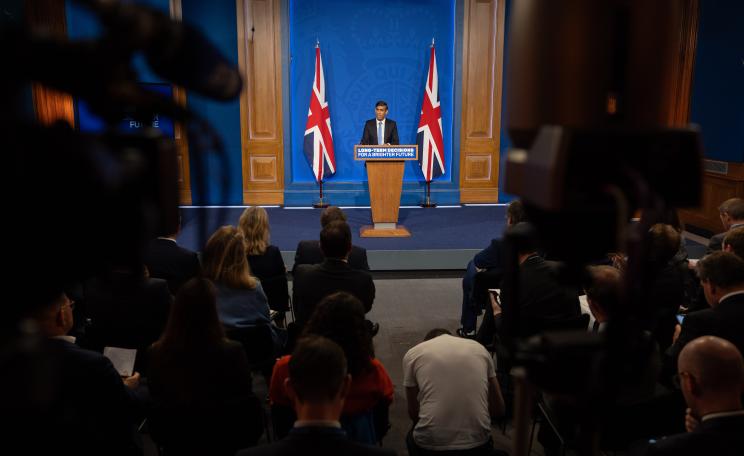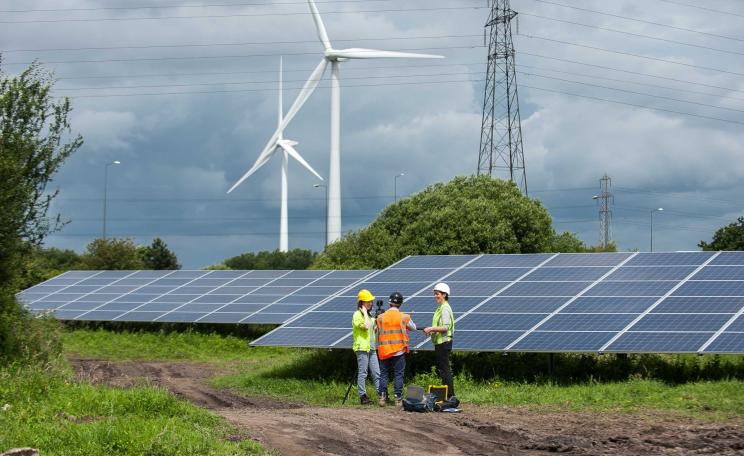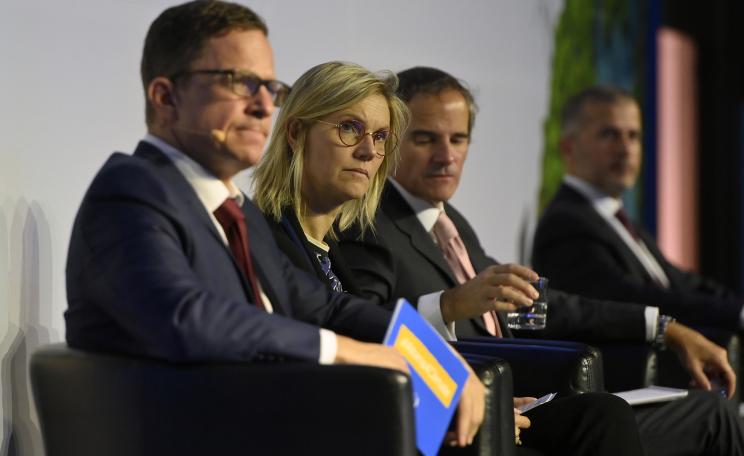Powering clean heat with clean, cheap, local energy is the ultimate win-win: lower bills, lower emissions and warm homes.
Heating homes through an innovative model of renewable power and electric heating technology could drastically reduce household bills and emissions, a new report commissioned by the climate charity Possible and authored by energy experts Regen has found.
The report finds that heating homes using heat pumps powered by community-owned, local wind power could reduce costs by around a quarter, compared to the average cost of gas-powered heating in 2023. Adding batteries and rooftop solar would increase the potential savings, making clean heat nearly a third cheaper than gas heating.
Powering heat pumps with local renewables would also maximise emissions reductions, cutting carbon by up to 90 per cent compared to gas heating, and would also produce lower emissions than running heat pumps on grid electricity.
Cheap
The report authors identified that 3,700 of the most deprived neighbourhoods in England are within 1km of an area with good onshore wind resources, pointing to the potential to alleviate fuel poverty by using this model. The report also outlines how such schemes can generate surplus energy, bringing down domestic electricity bills alongside heating bills, or generating revenue for the community.
However, the report notes that to make this model an option for communities across the country which would like to generate their own cheap, clean electricity to cut heating costs, there are significant policy barriers which the UK Government would need to remove.
Urgent changes are needed to energy bills, as currently policy costs are predominantly levied on electricity bills, which can make heat pumps more expensive to run than gas boilers and disincentivise take-up of low-carbon heating.
An overly restrictive planning regime remains a serious barrier for new onshore wind projects in England, even those with community support. Despite the government’s changes in September, which they claimed would unblock new wind in England, no new projects have come forward since then.
There is also a need for low-cost finance and greater support for communities to get projects going and meet upfront costs. Accelerating the rollout of clean home heating is an important part of hitting the UK’s net zero target.
Win win
In 2023, the National Infrastructure Commission said that around eight million additional buildings will need to switch to low-carbon heating by 2035, and all buildings by 2050.
However, the Climate Change Committee has noted that “the government proposes to scale-up the market for heat pump installations to 600,000 by 2028, but current rates are around one-ninth of this”.
Powering clean heat with clean, cheap, local energy is the ultimate win-win: lower bills, lower emissions and warm homes.
Clean heat solutions like the ones modelled in this new report would alleviate the cost of living pressure bearing down on households and help the UK to hit its climate targets, as well as supporting communities and increasing the UK’s energy independence and security.
Alethea Warrington, senior campaigner at climate charity Possible, said: “Powering clean heat with clean, cheap, local energy is the ultimate win-win: lower bills, lower emissions and warm homes. Now the government needs to remove the barriers stopping communities - and our climate - from benefiting from clean, secure and affordable heat.
“This means sorting out energy billing systems which make clean electricity more expensive than dirty gas, removing the planning blocks on new onshore wind in England, and supporting communities who want to get going on their own local energy and heat projects.
Clean
“It’s clear that we need to get off gas as quickly as possible, to keep people warm, cut energy costs and protect the climate. Using local wind power to do this can help us to meet net zero goals in a way that reduces economic inequality for some of our poorest communities.”
Rebecca Windemer, planning and communities lead at Regen and one of the report’s co-authors, said: “We know that we need to go much further and faster on clean heat to hit our net zero targets, and our report gives the government the keys to a real solution.
“This report shows that locally owned turbines could slash bills while cutting carbon, but we desperately need policy change to enable communities to directly benefit from these projects.
“We want to see proactive policy support for community-owned generation schemes and the full removal of the current policy restrictions on onshore wind.
This Author
Brendan Montague is editor of The Ecologist.







